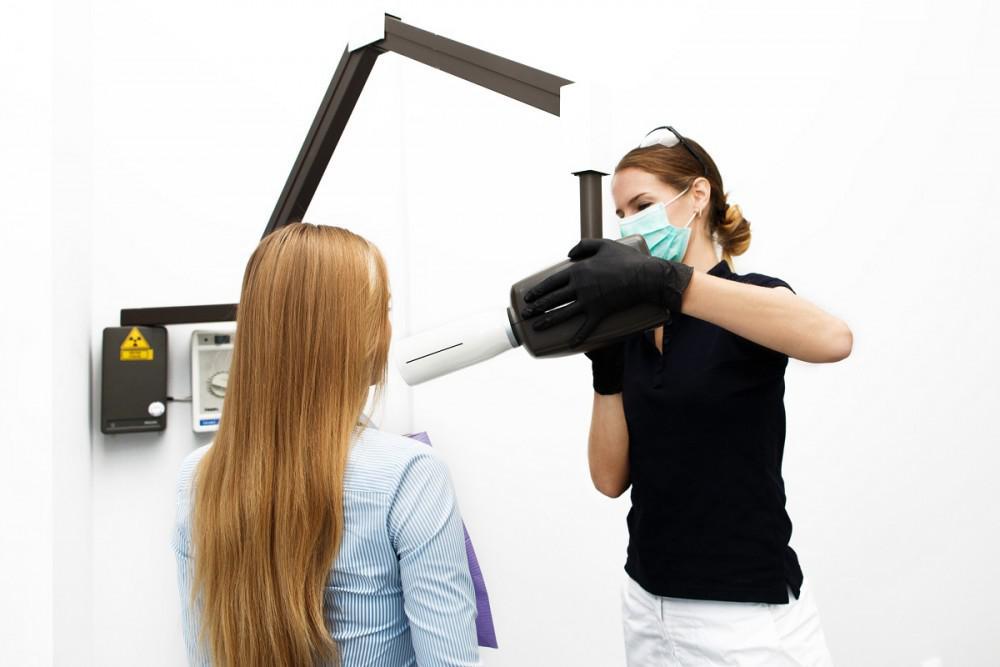
17
Aug
Benefits of Dental CBCT Scans for Dental Patients

A CBCT scan produces fantastic 3D images that reveal the bones, muscle tissue, and any dental work that may be present in these regions. The dentist can take advantage of a CBCT or cone-beam computed tomography scan to obtain a more detailed overall image of your entire mouth, nasal, jaw, and neck areas.
The benefits of dental CBCT scans include helping dentists thoroughly examine internal details of your mouth and present their diagnosis. Early diagnosis of dental issues allows early and efficient treatment. Radiations use in CBCT scans, but far less radiation than in traditional CT scans. Despite using radiation, they are incredibly safe.
How Does a CBCT Scan Work?
A CBCT scan imaging device gently revolves around your head and face. The radiologist may offer something to rest your head against to maintain total stillness during the scanning. The CBCT scan is rapid, requiring only 20 to 40 seconds, and is painless.
Interestingly, over 150 photos are captured throughout the brief imaging procedure or scanning and combined to create a single 3D image that your dentist can see. It is superior to the outdated, fuzzily black-and-white photos.
Benefits of Dental CBCT Scans for Dental Patients
CBCT scans are an excellent option for dental implants since they guarantee reliable and safe procedures. CBCT scans for dental implants have several advantages, such as:
Pictures of soft tissues and bone: Unlike routine dental X-rays, the CBCT scan can quickly scan bones and soft tissues. The dentist can easily measure and locate the available jawbone due to CBCT images and accurate and precise virtual implantation. The dentist can develop a more detailed treatment plan due to the scan’s better informational value than a standard dental scanning or X-ray.
Improved image clarity and quality: Dental professionals can check an area as narrow as a tooth’s root due to the CBCT, which focuses on a particular location. With 3D features, the dentist can see what’s happening in the patient’s mouth from several views and perspectives for a more accurate diagnosis or treatment and detailed examination.
A low radiation exposure: A CBCT scan emits less radiation than a routine CT scan. After the scan, the patient’s body has no radiation. However, a female patient must let the dentist know if she is pregnant so that they can take safety measures.
Fast and painless: A dentist typically needs between 20 and 40 seconds to do a scan all over the patient’s mouth, but it must take a minimum of 10 seconds to scan a particular area. A single scan can produce hundreds of images, giving the dentist a complete picture of the patient’s mouth and teeth. For a proper review, the dentist can change the perspectives, views, and angles every scan can give.
Helps to choose the correct implantation: The dentist can choose the ideal implant size for stability and insertion using the CBCT scan, this guarantees that the implant will work properly and last a long time for the patient.
Conclusion
The future of dental diagnosis and treatment planning will benefit significantly from CBCT and 3D imaging. This quick and painless procedure helps doctors plan reconstructive and cosmetic dental procedures by providing a detailed picture of your facial skeleton.
Get in touch with Dentists in Fairfield to schedule a checkup and cleaning with one of our seasoned dentists and ask them about the benefits of cone beam computed tomography (CBCT) for your next operation.
Contact your dentist in Fairfield, Dr. Zhu at Freedom Dental, to learn about the benefits of Dental CBCT Scans.
Share this Article
 Connect with Dr. Cheng Zhu on Twitter
Connect with Dr. Cheng Zhu on Twitter
Dr. Cheng Zhu - Freedom Dental
Cheng Zhu, DMD, leads Fairfield Dental and offers safe and effective services that support optimal comfort, healing, and an exceptional patient experience.Whether you need a crown, emergency care, implants, an impacted wisdom tooth extraction, or full-mouth rehabilitation, Dr. Zhu can help. A former pharmacist who can support your oral and overall health, he is one of the few dentists licensed in California to provide intravenous sedation to ease dental anxiety.
Dr. Zhu is trained and equipped to provide many advanced surgical options, eliminating the need to refer patients to other experts. Fairfield, California, patients trust the caring, compassionate, and affordable family dental care the team offers.
